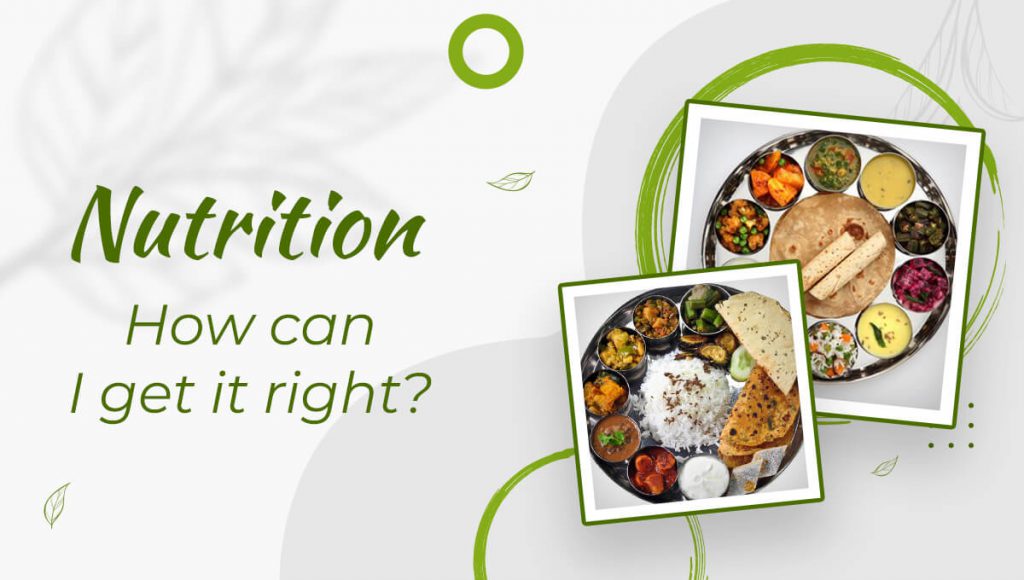Optimum nutrition is a crucial factor that fosters the well-being of an individual. When it comes to little children, it is undoubtedly the most important determinant of their physical growth and development. In India, the National Nutrition Week is celebrated from 1st-7th of September; a good time to ponder over the small, simple, forgotten facts about our diets and nutrition. The Academy of Nutrition and Dietetics came up with National Nutrition Week first in 1973, with the purpose to educate people about importance of nutrition. While a lot of us are privileged to have a daily supply of fresh, healthy food on our plates, there are lakhs in India who are still deprived of this basic right. Therefore, it is a time to not only focus on how we can ensure good health of ourselves and our family, but also spare a moment to think how we can tackle malnourishment in the underprivileged and rural sections of India.
Let’s begin with the definition of Nutrition. If you Google it, Dictionary defines it as “the process of providing or obtaining the food necessary for health and growth.” When you look at it from that perspective, you quickly realise that poor nutrition isn’t only a matter of deprivation but could very well be a deliberate decision out of ignorance. Yes, you could have all the resources for a well-balanced diet and yet, wrong dietary choices would still make you nutritionally deprived. Even today, we collectively obsess over calories, whereas the torchlight of nutrition should focus on health and well-being, and not on size.
It’s a well-known fact that there are seven main classes of nutrients that the body needs. These are carbohydrates, proteins, fats, vitamins, minerals, fibre and water. While a balanced meal would include all these in recommended proportions, one need not go overboard by being exceedingly calculative. The beauty of a basic Indian meal of roti, sabzi, dal, chawal and salad, is that it incorporates all nutrients in right proportions. When eaten in moderation, such a meal is wholesome and full of nutrients. Try to keep your grocery list local and seasonal. Supplementary factors that affect your nutritional status are the cooking methods, proportion of various ingredients, your own health status, your mental health, cultural influence, alcohol intake, even simple habits like whether or not you chew your food well. Thus, it’s the coming together of many factors that decides whether your nutrition is optimum. Eating right does not mean you aren’t allowed to indulge in fast-food or sweets. An occasional indulgence does now harm. Your overall nutritional status is an aggregation of everything you consume over a considerable period of time. As long as you are eating consciously, in moderate amounts, most of the time, you are on the right path.

There is enough information floating on the internet. From the healthiest foods to interesting recipes to myths and facts about food; every piece of information you seek is just a search away. Ingestion, absorption, assimilation, biosynthesis, catabolism, excretion -all these steps of nutrition are well explained on most websites. We are living in times where awareness, especially self-awareness, is at its pinnacle. By taking in information from reliable sources, we can be our own guides to optimum nutrition and live our lives in health and vitality. COVID-19 pandemic has taught us the importance of a robust immunity, and a nutritious diet is the backbone of a resilient immune system. Considering there’s at least one child in every family, the onus lies on grown-ups to model healthy dietary patterns for these young minds. A healthy child grows up to become a well-built, strong adult. These is especially true during pre-pubertal and pubertal years when hormones start moulding them into adults. And how do we ensure good hormonal levels? You guessed it right; by eating correctly and staying active. Therefore, for yourselves and your loved ones, read up a little, become aware, take some efforts and make sure you become nutritionally wise.
Moving on to those whose worry isn’t what’s on my plate; rather, do I have anything on my plate? Poverty in India is ubiquitous. Malnutrition follows. Economic inequality has led to a larger proportion of people in the lower socio-economic strata. Blame it on ineffective policies or unhindered rise in population, every time a child starves to sleep, we fail as a nation. Malnourishment and nutritional deficiencies have inflicted India for too long, with women and children bearing the brunt of economic failure. While the Government tries its best to address this issue, we can all do our bit at an individual level. So next time you have some left over food at home or at an outing, pack it and give it to some homeless. Those street-kids who come knocking at your car door, give them a packet of peanuts or chana. Your birthday or anniversary? Great time to make a small donation to an NGO, even better to gift a good meal to a hungry soul. Avoiding food wastage, being considerate of other people’s needs, and reserving a small part of your time and money to feed the poor are little ways in which you can make a difference. Can you alone make a difference in the hunger-ridden world? Certainly not. But next time you pass on food to someone who’s starved, you would definitely make a world of difference to that one person.



